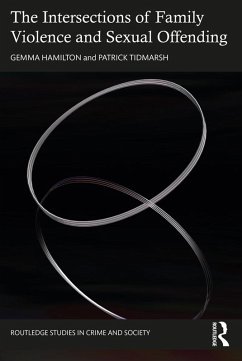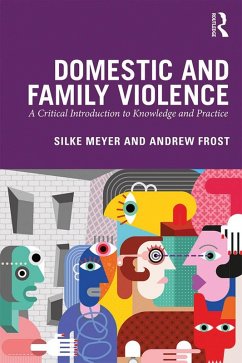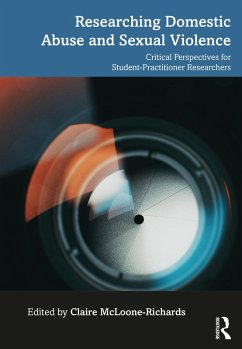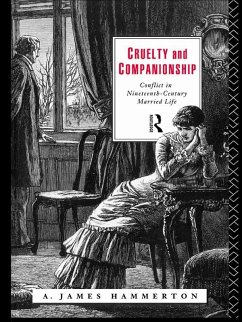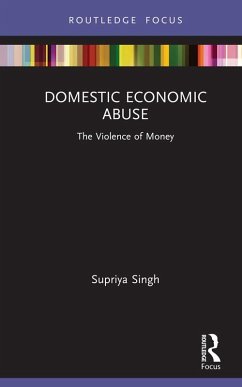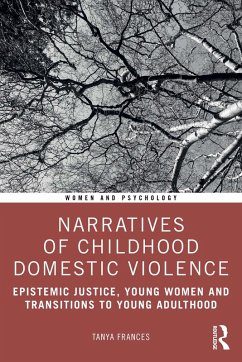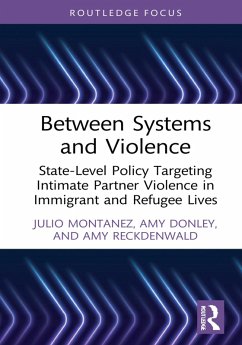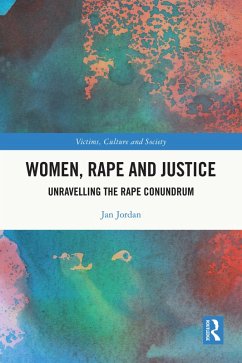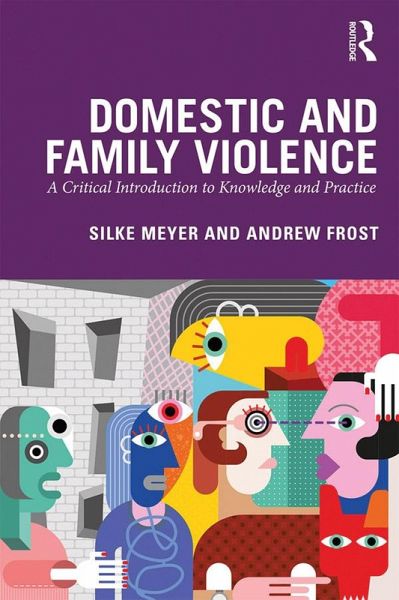
Domestic and Family Violence (eBook, ePUB)
A Critical Introduction to Knowledge and Practice

PAYBACK Punkte
19 °P sammeln!
Domestic and family violence (DFV) is an enduring social and public health issue of endemic proportions and global scale, with multiple and lasting consequences for those directly affected. This book tackles current debates in the field and addresses the social norms and settings that perpetuate this type of violence, along with implications for service delivery.The book offers a thorough introduction into the nature and extent of DFV in contemporary social contexts and serves as a foundation for informed practice. It provides a firm theoretical and empirical overview of core issues, covering ...
Domestic and family violence (DFV) is an enduring social and public health issue of endemic proportions and global scale, with multiple and lasting consequences for those directly affected. This book tackles current debates in the field and addresses the social norms and settings that perpetuate this type of violence, along with implications for service delivery.
The book offers a thorough introduction into the nature and extent of DFV in contemporary social contexts and serves as a foundation for informed practice. It provides a firm theoretical and empirical overview of core issues, covering the challenges and support needs experienced by those affected, along with the implications this raises for the range of relevant response services. The authors also offer insight into the predominantly gendered nature of DFV and its influence beyond the traditional couple context, across age, gender, sexual orientation, cultural background, and family relationships. Drawing on theoretical explanations, international research, and practice experience, they highlight examples of good practice and holistic responses, including primary, secondary, and tertiary prevention.
Written in a clear and direct style, this book will appeal to students and scholars of criminology, sociology, and social work engaged in studies of domestic and family violence, violence against women, and intimate partner violence. It will be an invaluable resource for those designing, coordinating, and conducting service responses.
The book offers a thorough introduction into the nature and extent of DFV in contemporary social contexts and serves as a foundation for informed practice. It provides a firm theoretical and empirical overview of core issues, covering the challenges and support needs experienced by those affected, along with the implications this raises for the range of relevant response services. The authors also offer insight into the predominantly gendered nature of DFV and its influence beyond the traditional couple context, across age, gender, sexual orientation, cultural background, and family relationships. Drawing on theoretical explanations, international research, and practice experience, they highlight examples of good practice and holistic responses, including primary, secondary, and tertiary prevention.
Written in a clear and direct style, this book will appeal to students and scholars of criminology, sociology, and social work engaged in studies of domestic and family violence, violence against women, and intimate partner violence. It will be an invaluable resource for those designing, coordinating, and conducting service responses.
Dieser Download kann aus rechtlichen Gründen nur mit Rechnungsadresse in A, B, BG, CY, CZ, D, DK, EW, E, FIN, F, GR, HR, H, IRL, I, LT, L, LR, M, NL, PL, P, R, S, SLO, SK ausgeliefert werden.




